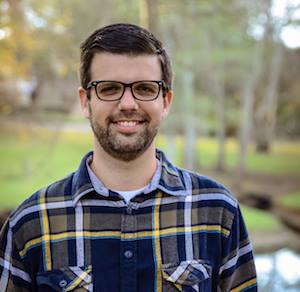When it comes to fixing things, I’m absolutely horrendous. You know how when someone is a terrible dancer, people say, “He has two left feet?” Yeah, I’ve got two left hands.
If something breaks on one of our minivans, I’m usually relatively clueless. I can make a vague, occasionally educated guess (“That squirrel on fire sound may be some sort of belt.”) but I’m always at the mercy of the mechanics.
And nothing against mechanics, but they make me feel like a moron. “Yeah, what you’ve got is a loose left headlight shifter. It’s caused by a slipped rotor bearing that’s rubbing against the twisted wicket. And it costs $13,000 to fix.”
It’s frustrating, but I’m simply not good at fixing things.
And it turns out I’m not good at fixing people and situations either.
I’ve learned this the hard way.
When I was younger, I held the mistaken belief that I could somehow repair people and broken situations.
So, when I got into a conflict or felt like someone was sinning, I made it my job to fix the problem. Dr. Fixer, prescribing spiritual solutions one Bible verse at a time.
Struggling to trust God? Here, take a dose of Romans 8:28.
Struggling with anger? Two spoonfuls of James 1:20 and a good night’s sleep should do the trick.
Worried about the future? I’m going to give you 20 milligrams of Matthew 6:25. If you’re still experiencing symptoms, double the dose.
If a person didn’t change rather quickly, I became … rather frustrated. I got angry, assuming that the person was choosing not to change. That they simply weren’t believing God’s Word enough. That if they could just get those verses pounded into their hearts, the sin and situation would resolve itself.
They say a watched pot doesn’t boil. This is stupid. Of course it does … I’ve seen it (clearly I need new hobbies). But a watched person almost never changes – at least not at the speed I think they should.
Why is this? Two reasons.
Reason #1: I’m Not God
It turns out that God doesn’t usually change people quickly. This seems weird, at least on the surface. If our holiness is a good thing, then why doesn’t God simply make us holy right away? He could do this. It’s not like it’s beyond His ability. But He doesn’t.
This means that He must care just as much about the process of change as the change itself. It turns out that God reserves the right to change people how He wants, when He wants, and through whatever means He wants.
Let’s put it this way: God gets a unique glory through the process of change that is different from the change itself.
If holiness were a mechanical, controllable process, like a medical prescription, we could take glory for changing ourselves. But the reality is that we can’t produce godliness in ourselves or other people. We’re called to strive for obedience and put sin to death, but ultimately God is the One who must produce the growth. Paul puts it this way:
What then is Apollos? What is Paul? Servants through whom you believed, as the Lord assigned to each. I planted, Apollos watered, but God gave the growth. So neither he who plants nor he who waters is anything, but only God who gives the growth. (1 Corinthians 3:5-7)
Paul refused to take credit for both the belief and the growth of the Corinthians. Why? Because God gives growth and takes all the glory for it.
When I try to force people to change, I try to take the place of God.
Reason #2: Growth Is Really Slow
This is a slight variation on the first point. Spiritual growth is a really, really, really slow process. I see this in my own life. There are sins that I’ve struggled with for years. Yes, I’ve made some progress, but that progress has been waiting-in-line-at-the-DMV slow. I have to hear something about 10,000 times before I actually get it.
Yet for some reason, I assume other people should change quickly. I assume that if you’ve heard a particular Scripture once or twice, you should be able to immediately put it into practice.
Sis-boom-bah, presto change-o.
But when you read through God’s Word, the process of sanctification is always described in slow, quiet terms. Psalm 1 describes the righteous man like this:
He is like a tree planted by streams of water that yields its fruit in its season.
You can’t actually see fruit growing. It’s not like you sprinkle some fertilizer on a tree and then it suddenly explodes with oranges. Fruit grows slowly and shows up in seasons. Farmers don’t look for corn in the dead of winter because they know that’s not how it works.
God doesn’t do “quick.” He does slow and methodical over a long period of time.
I’m ridiculously slow to change. I should automatically assume others are as well.
Freedom from Being the Fixer
These two truths are radically freeing. I don’t have to fix people or situations. In fact, trying to fix them almost always makes them worse. Trust me, I’ve tried.
I can’t create godliness in myself, and I can’t create it in my kids, wife, friends, or family. That’s God’s job. I’m not the Holy Spirit. I’m not the one who convicts of sin and righteousness. When I try to do God’s job, I inevitably make a mess of the whole thing.
I’m simply called to patience. Yes, there will be times when I share a verse with someone, but most of the time I’m supposed to wait for God to do the changing.
I’m not the fixer.
And that’s a really good thing.


 Stephen Altrogge
Stephen Altrogge
